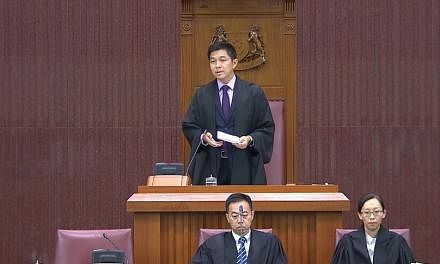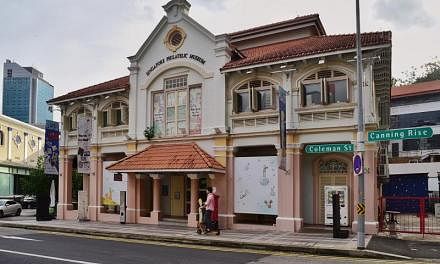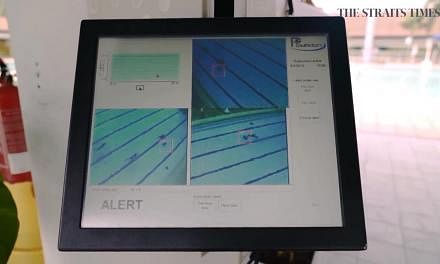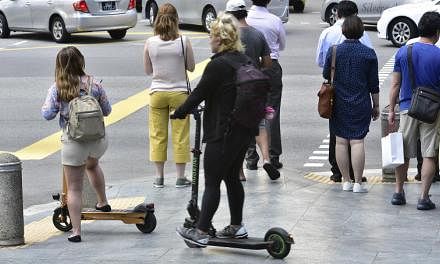SINGAPORE - Companies that receive government grants for their projects will be required to commit to outcomes that improve the lot of workers, such as increasing wages, creating and redesigning jobs or hiring more older workers.
To spur this drive, two government programmes will be merged on April 1, 2020: the Inclusive Growth Programme (IGP) and the Enterprise Development Grant (EDG).
The move to put workers first when businesses grow is a significant change in how the Government approaches enterprise transformation, said Senior Minister of State for Trade and Industry Koh Poh Koon in the debate on his ministry's budget.
"Worker outcomes should no longer be an afterthought, but fully integrated into our enterprise grants from the first dollar given," he said in Mandarin.
"We have seen friction and instability arise in other parts of the world when workers feel they are left behind. We should learn from these developments and ensure that both our companies and workers share in the gains from transformation."
Dr Koh also said more is needed to encourage companies to share their productivity gains with their workers through higher salaries.
This is a requirement of the IGP, which is administered by the Employment and Employability Institute to help businesses kick-start productivity projects.
On the other hand, the EDG, which is run by Enterprise Singapore, aims to help small and medium-sized enterprises take on more ambitious projects.
Earlier, Trade and Industry Minister Chan Chun Sing said the EDG will be extended for another three years to 2022, to help companies defray project costs of up to 70 per cent.
Dr Koh's announcement of the two programmes' merger follows questions from MPs, including Mr Teo Ser Luck (Pasir Ris-Punggol GRC) and Mr Liang Eng Hwa (Holland-Bukit Timah GRC), on how the Government supports businesses and jobs through schemes and grants.
While all 23 industry transformation maps (ITMs) have been launched, MPs said many businesses still need more support in research, adopting innovations and venturing overseas.
The ITMs plot how the 23 industries, which make up about 80 per cent of Singapore's economy, should transform to survive technological disruptions.
To achieve it, Senior Minister of State for Trade and Industry Chee Hong Tat said the Government will help Singapore businesses expand their operations here and abroad.
For start-ups, a range of measures exist in such areas as financing, networking and mentorships, with many originating from local institutions.
Mr Chee, however, cautioned that in building an enterprising society, few start-ups succeed, while many fail, some repeatedly.
"If we have zero tolerance for failures and mistakes, innovation and entrepreneurship will have zero chance of succeeding," he added.
Mr Chee also gave details of the new Enterprise Financing Scheme, which groups eight existing schemes and will be established in October 2019.
The aid will include greater financial support for overseas projects, which are typically more risky.
Insurance cover for overseas project financing will be raised to a maximum of $50 million for up to 15 years. Companies that internationalise via mergers and acquisitions can also be covered by up to $50 million of loans for such ventures, so that they can quickly build capabilities and expand abroad, said Mr Chee.
Workers' Party MP Low Thia Khiang (Aljunied GRC) urged the Government to find more ways to transform public-sector research into commercial use, pointing to how other countries have done so with defence technologies.
Mr Chee said the MTI agreed with the need for research agencies to collaborate with industry players.
But, he added, not everything from defence research can flow into the commercial sector, as some are classified projects for protecting the nation.
He, however, cited one technology from defence research that has been commercialised: optronics technology.
It uses devices and systems to detect and control light, and a local company is using it to measure water quality in reservoirs, he said.
Elaborating on the Scale-up SG programme announced in the 2019 Budget statement, he said local enterprises with a high growth potential can be groomed into global powerhouses.
The programme will help them customise long-term plans in a specific manner, in such areas as innovation and internationalisation.
As these companies find success here and abroad, Mr Chee hopes they can pave the way for other companies to grow by teaming up with them to test-bed innovations.
"In this way, we can sustain our scale-up efforts and grow more Singapore companies into globally competitive enterprises," he said.












